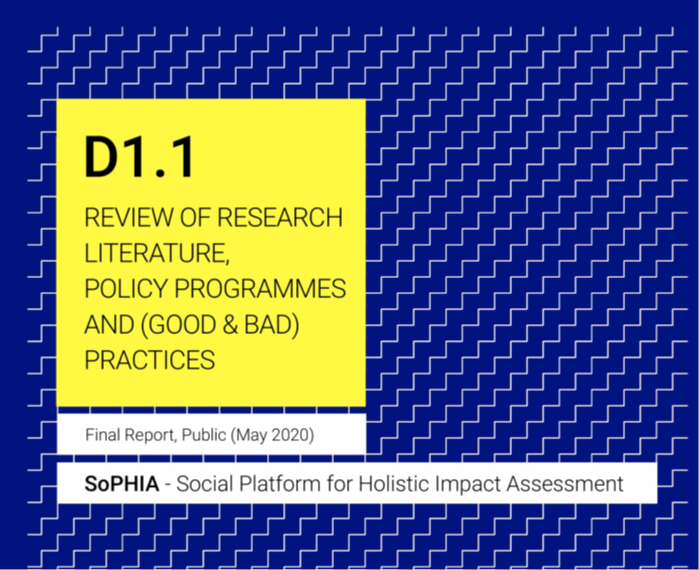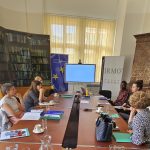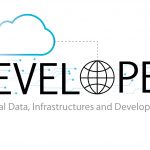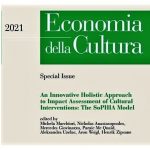From the beginning of 2020 until the end of July, the SOPHIA consortium, including IRMO team, has worked on a number of activities within Work package 1 ‘Survey of existing research and related policies’ that was coordinated by the National Technical University of Athens (NTUA). This first stage of the SOPHIA project included an extensive literature review on assessing the impact of cultural heritage interventions across the cultural, social, economic and environmental domains; a critical analysis of our findings; the generation of a Holistic Impact Assessment Model draft; and of a Digital Mapping Tool, both to be tested during the current phase of examining case studies. A workshop that would take place in Athens addressing partners, members of the Advisory Board and stakeholders, due to the Covid-19 pandemic, was converted into a successful virtual meeting.
The first deliverable D 1.1 Review of Research Literature, Policy Programmes and (good and bad) Practices has been made available on the SoPHIA´s website. The research draws from academic resources, current policies and regulations, as well as social platforms, with the content structured around four themes: trends, policies, gaps & opportunities, and strategies. Some noteworthy findings extracted from the literature review, are the need to employ both qualitative and quantitative methodologies in cultural heritage social impact assessment and to help create a dialogue between community and governmental agencies (social domain). Cultural heritage can support citizen well-being and cultural memory work, expand the understanding of the relation between people and heritage, and even assist in dealing with conflict (cultural domain). A closer examinations of current methods of impact assessment identified the indeterminacy of the concept of value, the imbalance among impact evaluation domains, as well as the fact that negative effects are usually underrated (economic domain). One of the recurrent themes is sustainability, the overcoming of the repercussions of aggravating phenomena such as climate change, over-tourism and the growing urbanization globally as well as the adopting of circular economy principles as a means of instrumentally integrating built heritage in urban planning (environmental domain). Participatory governance and volunteering that support the involvement of civil society in the creation and implementation of development policies could help strengthen integration and social cohesion; distribute positive effects among social classes and stimulate creativity.
LINK:
More about project: SoPHIA – Social Platform for Holistic Heritage Impact assessment






